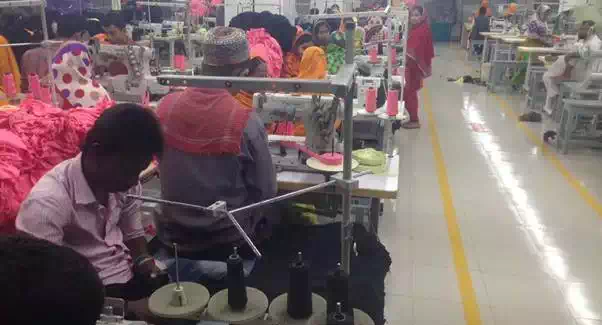Responsibility of sewing supervisor

Cloth is most known particular things we used since we were baby and still we use it every single day in our life social life. This cloths we wear, is not so easy to produce, its take a long journey in production factory. One of your garments is required to look after by too many responsible people. Todayís our discussion related one of them is called sewing supervisor. Sewing section is the unit of garments which is responsible to make a proper shape and extended life of stitch to maintain the buyer quality standard.
Responsibility of a sewing supervisor
Responsibility of a sewing supervisor is not like a desk job and work eight hours in a day. Itís very difficult to explain who has no personal experience in garment sector especially in underdeveloped country like India, Bangladesh, Pakistan, and many more. Sewing supervisor need to attend his/her duty in on production floor with hundred of sewing operators. Every production needs thousand of worker in a unit and in charge of all of them are production manager. In that case the production manager is unable to look after all of those workers so they need sewing supervisor to maintain a unit amount of worker and operator. A sewing supervisor also observed by production manager, they get order from manager and done the job by worker. After complete the task the supervisor submit those production information in corporate office by order of production manager.
Responsibility of production supervisor
∑ Planning and organizing production schedules
∑ Take a look of the project and resource total amount of raw material.
∑ Style Analysis with expert mind to get buyer requirement.
∑ Estimating, negotiating and agreeing budgets and timescales with clients and managers
∑ Ensuring that health and safety regulations are met
∑ Discipline in Shop Floor
∑ Operator Training needs to execute the production without any problem
∑ Line Setting maintain the production system following step by step
∑ Line Balancing and WIP Control
∑ Determining quality control standards
∑ Overseeing production processes
∑ Re-negotiating timescales or schedules as necessary
∑ Selecting, ordering and purchasing materials
∑ Organizing the repair and routine maintenance of production equipment
∑ Liaising with buyers and marketing and sales staff
∑ Supervising the work of junior staff
∑ Machine Selection
∑ Stitching Quality
∑ Meeting Target Production
Required special skill of production supervisor
∑ Confidence on challenging work.
∑ Technical skills in production sector.
∑ Project management skills in relevant area.
∑ Organisation and efficiency in factory
∑ Communication skills with worker and office.
∑ Team working skills with peaceful mind
∑ Computer skill with MS Office and Internet
∑ Problem solving skills to reducing time and money wastage.
∑ Leadership and interpersonal skills to maintain worker.
∑ Calculation skill to calculate any critical production calculation.
